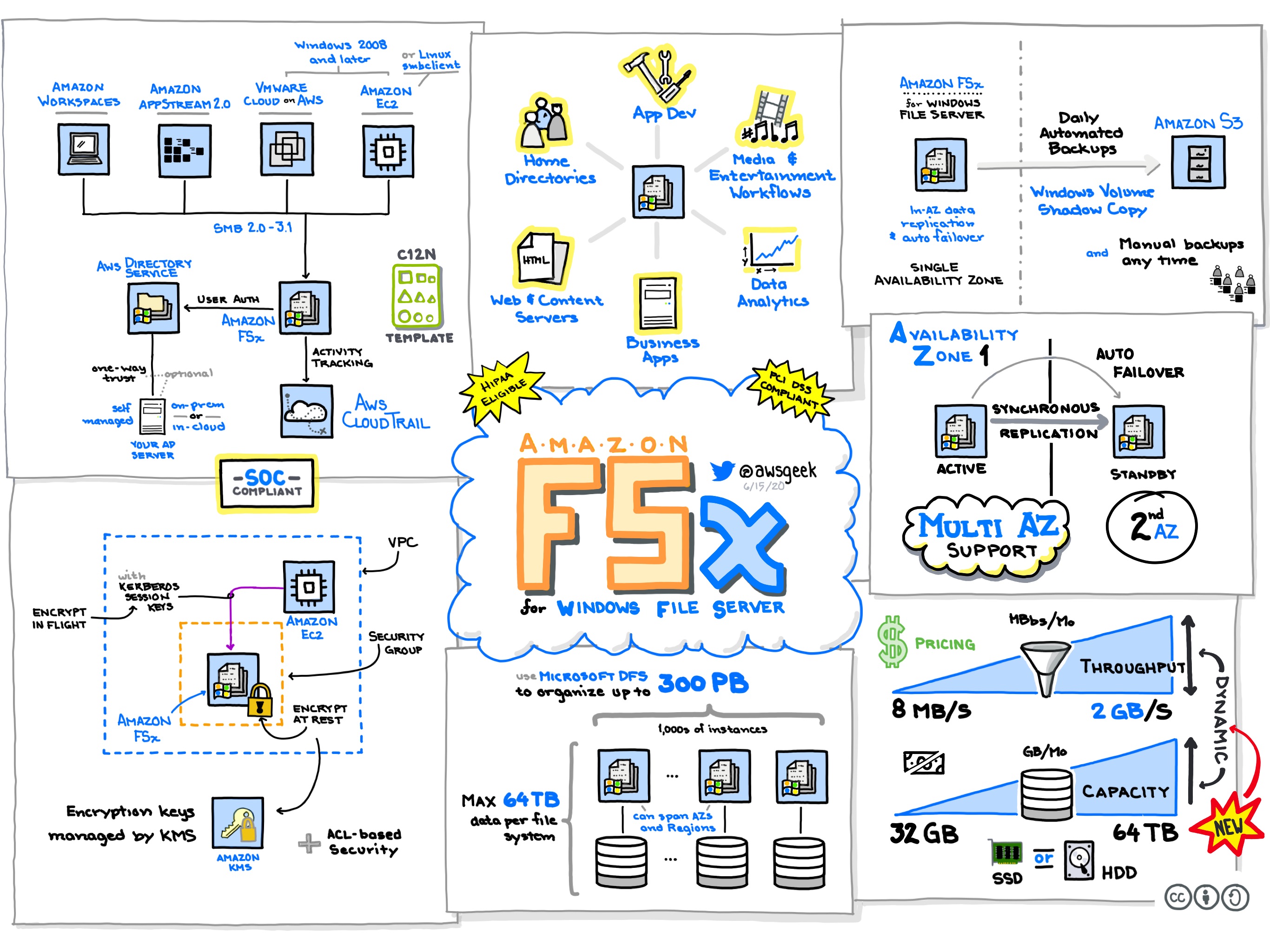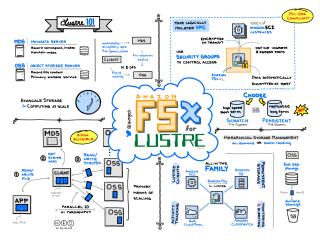
Amazon FSx for Windows File Server is a fully managed service providing feature-rich, high-performance, and cost-efficient storage solutions compatible with Windows applications. It's engineered to support a gamut of use cases for professional developers and IT administrators seeking scalable and secure storage in the cloud, and seamlessly integrates with existing Windows-based environments.
Use Cases
Amazon FSx for Windows File Server is ideal for organizations that run Windows-based applications and require shared storage to facilitate robust collaboration and data access. Common use cases include hosting enterprise applications like Microsoft SharePoint, ERP applications, web serving, and line-of-business (LOB) applications. The service is also beneficial for enabling backup and disaster recovery solutions, providing the resilience necessary to maintain operational integrity. Storage-intensive applications such as data analytics and high-performance computing (HPC) can leverage FSx for enhanced I/O throughput and low latency access.
Pricing
Amazon FSx adopts a pay-as-you-go pricing model, allowing businesses to pay only for the resources they consume. Factors influencing cost include the amount of storage provisioned, throughput capacity, backup storage, and the geographical location where the instances are deployed. Additionally, AWS provides a pricing calculator to forecast expenses, which can be a useful tool for budgeting and cost management.
Scalability
Scalability is a cornerstone of Amazon FSx, allowing IT administrators to expand or contract the storage capacity to fit evolving business needs without incurring downtime. With the capacity to scale from a few gigabytes to multiple petabytes, this service accommodates dynamic workloads with seamless integration.
Availability
Amazon FSx for Windows File Server is designed for high availability, offering multiple deployment options tailored to the organization's reliability needs. File systems are deployed across multiple Availability Zones within an AWS Region, providing data redundancy and failover capabilities essential for uninterrupted application performance. This, combined with regular automatic backups, enhances data durability.
Security
Security is paramount when using AWS services, and FSx is no exception. It integrates natively with AWS Identity and Access Management (IAM) to control and manage permissions, while supporting AWS Key Management Service (KMS) for encryption at rest. In addition, it provides encryption in transit using SMB protocol 3.0, ensuring data integrity and compliance with stringent IT governance standards.
Competition
Amazon FSx competes with several analogous cloud storage services. Microsoft Azure offers Azure Files, which provides fully managed file shares in the cloud, accessible via the SMB protocol. Google Cloud Platform provides Google Cloud Filestore, which integrates with Google Compute Engine and Kubernetes Engine to deliver high-performance file storage. Alibaba Cloud features Alibaba Cloud NAS, a scalable and flexible network file storage service. These services aim to provide similar value propositions and applications, catering to a wide range of customer requirements and global market preferences.
In summary, Amazon FSx for Windows File Server is a robust solution for managing Windows-based workloads. With its extensive features in scalability, availability, and security, it's designed to meet demanding needs in enterprise environments. The strategic use of this service in conjunction with other AWS offerings can significantly enhance IT operations and development workflows.
 Amazon FSx for Lustre
Amazon FSx for Lustre
 .NET & Windows Workloads on AWS
.NET & Windows Workloads on AWS
 Desktop Apps on AWS
Desktop Apps on AWS
 Migrating Windows Workloads to AWS
Migrating Windows Workloads to AWS